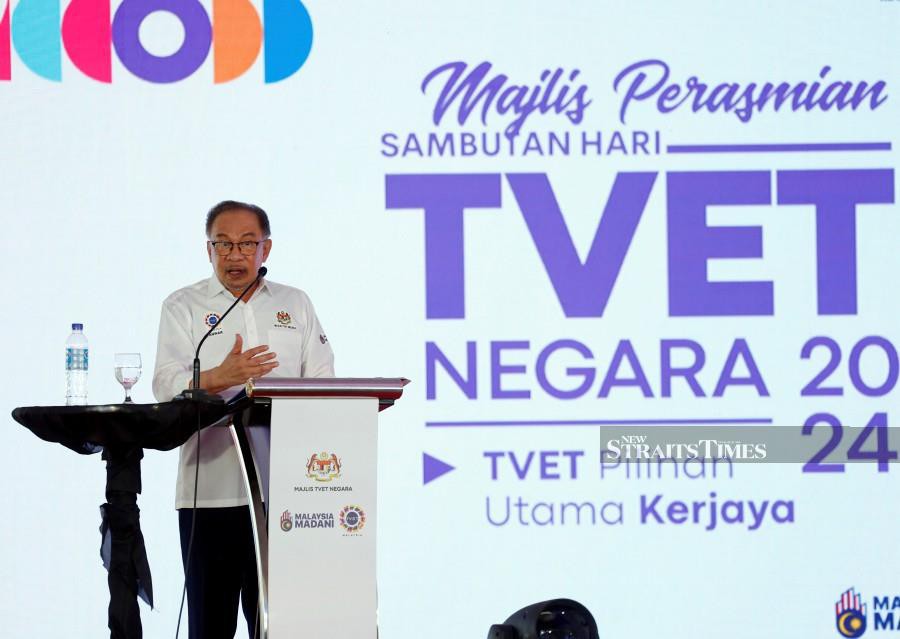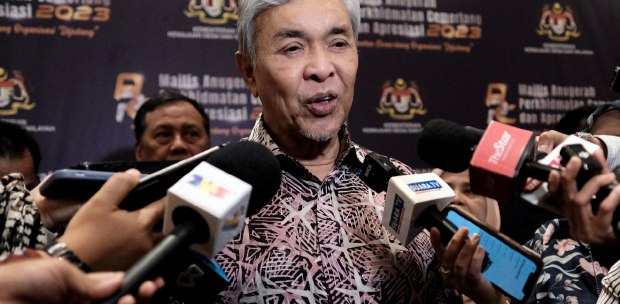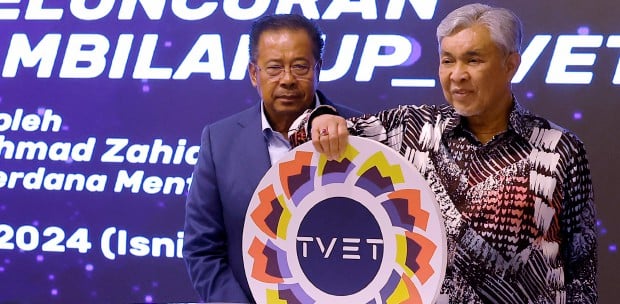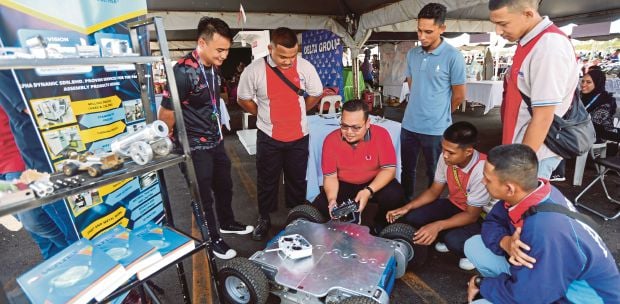KUALA LANGAT: The Education and Technical and Vocational Training (TVET) could be further strengthened through larger allocations if corruption and mismanagement in the country are eradicated, said Prime Minister Datuk Seri Anwar Ibrahim.
He said the country has great potential in the TVET field, especially as Malaysia is now being a focus of foreign investments, particularly in the semiconductor sector.
However, corrupt practices such as 'sakau' (cleptocracy) have resulted in the waste of hundreds of millions of ringgit, he said.
"If we act now (with cooperation from all parties), with domestic and foreign direct investments, political stability, and bold actions, while curbing corrupt activities.
"This betrayal must be stopped so that we can return the money to the people.
"The younger generation needs to understand why people are angry with us, why do we keep talking about corruption, mismanagement?
Yes, because this (corruption) is the reason we are having difficulty to find the money now," he said in his speech at the launch of National TVET Day and National TVET Policy 2030, at the Kuala Langat Industrial Training Institute here today.
Anwar, who is finance minister, said he instructed the Malaysian Anti-Corruption Commission (MACC) to take actions, including raids and arrests of those stealing from the country.
Meanwhile, the restructuring of subsidies for various services and goods, which were also aimed at saving public expenditure, "would only see the rich and foreigners losing the benefit".
With an annual saving of about RM4 billion from targeted subsidies for diesel, he said, more assistance could be distributed to those in need, especially the low-income group.
"When we save (on subsidies), believe me, this is for TVET. If we implement it effectively, TVET allocations will be increased.
Anwar explained that the restructuring of subsidies for various services and goods is expected to result in significant savings for the country.
He said that the restructuring of subsidies does not mean the cessation of such facilities; rather, assistance will be distributed to specific groups, especially the low-income community.
"If we save (on subsidies), believe me, we can allocate more for TVET (as well)."






